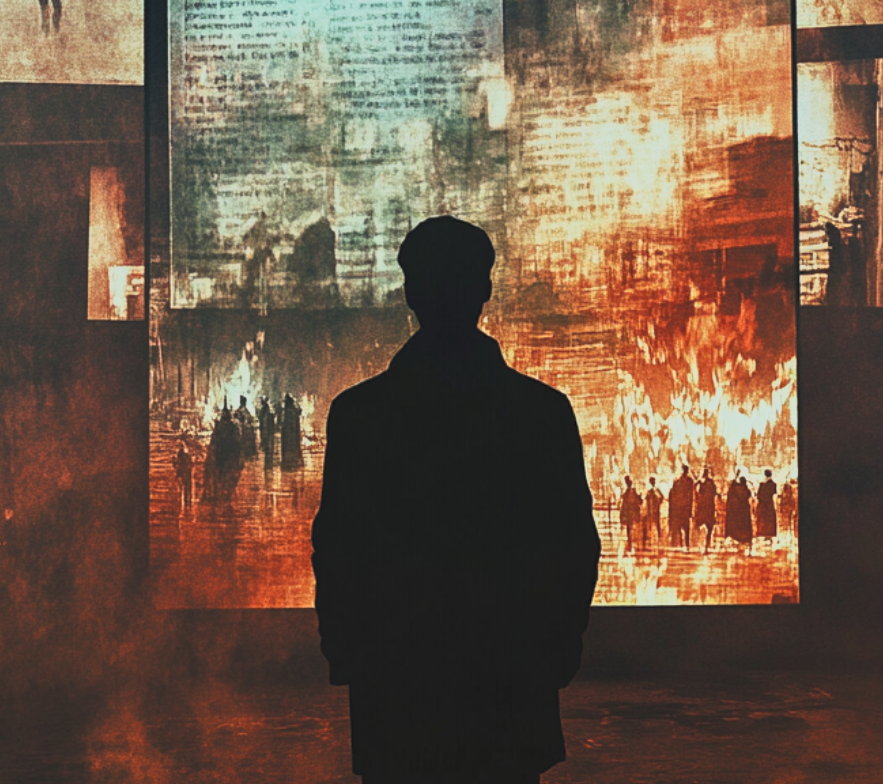When I stumbled across an article claiming that only 200,000 Jews perished in Nazi camps—not six million—my first reaction wasn’t outrage, it was confusion. A pause. Then guilt.
Images of skeletal prisoners and ash-filled crematoria flashed across my mind, yet for a moment the number felt abstract—five million, six million, two hundred thousand. In that instant I saw how easy it is, even for someone who knows better, to become numb to atrocity. I made coffee, checked the scores, and moved on.
That numbness is the same disease infecting our relationship with technology.
We built an unfinished digital revolution—a tool meant for connection that mutated into a labyrinth of distraction, rage, and harm. We handed the next generation not a miracle but a maze.
At the dawn of the internet, there was utopian fervor: the Arab Spring, Occupy, the promise of global unity. By 2016, truth itself had become contested terrain. Algorithms amplified lies. Foreign interference blurred reality. A president weaponized falsehood. Platforms designed for community became hunting grounds. Bullying, conspiracy theories, and pornography flourished. We assumed collective accountability would self‑regulate the new frontier. It didn’t.
The mirror shattered, and now the public lives inside the shards. There is no singular “public” anymore—only mutually hostile bubbles, people yelling at each other across fractured realities.
The cost is etched into Generation Z. Studies show overwhelming stress, depression, and existential fatigue among young adults—children raised on screens, steeped in climate anxiety, viral misinformation, and algorithmic manipulation. We gave them boundless information but little wisdom. Connectivity without communion. Identity as performance. Critical thinking, tangible skills, and resilience all dimmed under the blue glow of constant scrolling.
Our miscalculations are stark. Social media, once a college‑student niche, now hosts grandmothers and predators alike. It amplifies movements like #MeToo but corrodes civic discourse. We dismissed the need for guardrails, trusting idealism over pragmatism. The result: a polarized populace, eroded trust, and a generation for whom even basic truths—1 + 1 = 2—feel negotiable.
This isn’t condemnation, it’s confession. We built this.
We normalized the absurd: influencers over experts, outrage over nuance, screens over sunsets. We transitioned from chat rooms to TikTok, from privacy to oversharing, from tangible competence to virtual validation. When the power fails—when the digital veil lifts—what remains? A generation unprepared for silence, stillness, or the weight of unmediated reality.
The high point of techno‑democratic optimism was arguably 2011, a year that began with the Arab Spring and ended with the global Occupy movement. That’s also the year Google Translate arrived on virtually every smartphone—humanity’s attempt to rebuild the Tower of Babel. And yet our new Babel didn’t unite us; it atomized us.
There is a kind of perverse poetry in this unraveling. The internet mirrors our best and worst impulses, our hunger for meaning amid chaos. It reflects a generational clash: Boomers frozen in post‑9/11 trauma, Gen X nostalgic for analog simplicity, Gen Z drowning in digital overload. We are all complicit, all casualties of progress hurtling forward without a compass.
Reckoning begins with humility. Before dismissing flat‑earthers or QAnon, ask what fractures in our collective psyche allowed these beliefs to thrive. Before lamenting Gen Z’s struggles, confront the systems we designed—and failed to mend. History’s ghosts, from Auschwitz to 9/11, demand more than passive remembrance. They require us to forge a world where truth is not relative, where technology serves rather than enslaves, and where generations to come inherit not just our innovations but our wisdom.
The storm is here. Whether we learn to navigate it—or drown in it—remains our unfinished revolution.

